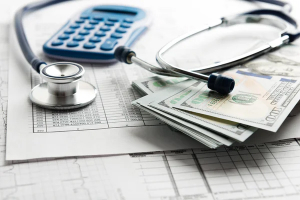
After a car accident, one of the first questions people ask is, "Who will pay for my medical bills?" This concern is valid, as medical costs can quickly add up. At Richardson Richardson Boudreaux, we understand that many people assume that their health insurance company or car insurance company will pay for their medical treatment. However, what happens if the accident is not your fault?
Learn more below. Then, contact us to schedule a free consultation.
Overview of the Immediate Concerns After a Car Accident
Immediately following a car accident, your safety and health are the top priorities. You should check for any injuries and see a doctor quickly. Certain injuries, like whiplash, may not show symptoms immediately. It's also essential to remain at the accident scene unless it is unsafe. Once you have been told you can leave, see a few medical providers to ensure your injuries are addressed.
Types of Medical Bills After a Car Accident
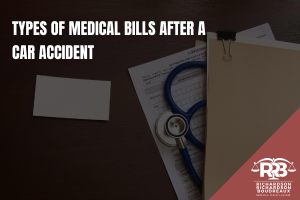
A. Emergency Room (ER) Services
ER services are often the first medical care you'll receive after a car accident. These services can include immediate treatment, assessments, and stabilization. The costs depend on the severity of your injuries and the treatments required.
B. Ambulance Fees
If you need an ambulance to get to the hospital, this will add to your medical expenses. Ambulance rides can be costly, depending on the distance traveled and the care provided en route. It's essential to include these costs when calculating your total medical expenses.
C. Hospitalization Costs
A hospital stay might be necessary for severe injuries. This can lead to significant costs, including room charges, surgeries, and round-the-clock care. The length of your stay will significantly affect the total cost.
D. Physician and Specialist Fees
After an accident, you might need to see various medical professionals. These could include emergency room doctors, surgeons, and specialists for specific injuries. Each professional has their fees, which can add up quickly.
E. Diagnostic Tests
Diagnostic tests such as X-rays, MRIs, and CT scans are standard after car accidents. These tests are crucial for understanding the extent of your injuries. They can be expensive, especially if multiple tests are needed.
F. Prescription Medications
You may need prescription medications for pain relief or to treat injuries. The cost of these medications can vary, but they're an essential part of your recovery and should be factored into your medical expenses.
G. Physical Therapy
If your injuries require rehabilitation, physical therapy might be necessary. This can involve multiple sessions over weeks or months, leading to substantial costs.
H. Medical Equipment and Supplies
Some injuries may require medical equipment like crutches, braces, or wheelchairs. These supplies add to your overall medical costs after an accident.
I. Home Healthcare Services
In cases of severe injuries, you might need home healthcare services. These include nursing care, physical therapy at home, and assistance with daily activities, all expensive.
J. Follow-up Appointments
After initial treatment, follow-up appointments are often needed to monitor your recovery. Although sometimes less expensive than initial treatments, these appointments still contribute to your medical expenses.
K. Mental Health Services
Car accidents can be traumatic, and you may need mental health services to cope with the emotional aftermath. Therapy and counseling sessions are essential for your mental well-being but can be costly.
L. Transportation to Medical Appointments
Transportation costs to and from medical appointments should be noted. Whether you're paying for gas, public transportation, or specialized transport services, these costs can add up, especially for frequent appointments.
Understanding Financial Responsibility After a Car Accident
Determining who pays for medical bills after a car accident depends on several factors. One key factor is the state's laws regarding car accidents. Some states have at-fault systems, where the person who caused the accident is responsible for the costs. Other states use a no-fault system, where each person's insurance pays for their expenses, regardless of who caused the accident.
Immediate Steps After a Car Accident
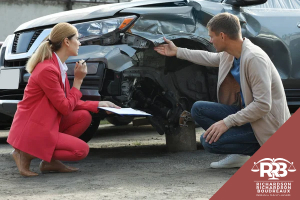
Contacting Emergency Services
After a car accident, your first step should be to call emergency services if anyone is injured or has significant property damage. This ensures that everyone gets the medical help they need and that there's an official record of the accident. The police report from this call can be crucial when dealing with insurance companies or legal matters.
Gathering Information at the Accident Scene
It is crucial to gather as much information as possible at the accident scene. Exchange names, contact details, and insurance information with the other driver. If there are witnesses, get their contact information as well. This information can be invaluable later on.
Seeking Medical Attention
Even if you feel alright after a crash, seeking medical attention is vital. Some car accident injuries, like whiplash or internal injuries, may not be immediately apparent. A doctor can review your condition and provide necessary treatment.
Auto Insurance Coverage
Your car insurance policy may cover your medical expenses after an accident, depending on your coverage type. Liability insurance, mandatory in most states, covers damages you cause to others. However, it does not cover your medical expenses.
Determining Fault in a Car Accident
Determining fault in a car crash is crucial, especially in at-fault states. The person who caused the collision is usually responsible for the damages, including medical expenses. The process of determining fault involves examining evidence from the accident, like photos, witness statements, and police reports.
No-Fault Insurance Systems
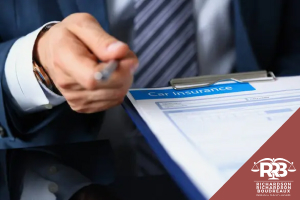
In no-fault insurance states, each driver's insurance covers their medical bills, regardless of who caused the crash. This system aims to reduce the number of lawsuits and speed up the process of covering expenses. However, there are limitations. Oklahoma is an at-fault state, so liability plays a role in who pays for the accident.
Medical Payments Coverage
A. Medical Payments (Medpay) Coverage
Medical Payments Coverage, or Medpay, is an optional insurance coverage for medical expenses related to a car crash. It covers you, your passengers, and sometimes pedestrians injured by your vehicle. Medpay is available regardless of who is at fault for the accident.
B. How Medpay Works in Covering Medical Expenses
Medpay starts paying out immediately after an accident, covering a range of medical costs. This includes hospital visits, surgeries, X-rays, and more. It's a quick way to cover some medical expenses without waiting for fault determination.
C. Limits and Considerations When Using Medpay
Medpay has coverage limits, which vary depending on your policy. Once these limits are reached, it won't cover any more expenses. Understanding these limits and how they fit into your overall insurance strategy is essential. Medpay doesn't cover other damages like lost wages or pain and suffering.
Health Insurance and Personal Injury Protection (PIP)
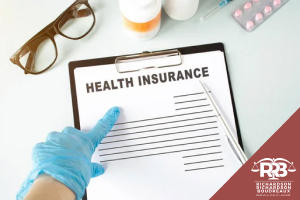
A. Role of Health Insurance in Covering Medical Bills
Your health insurance can cover medical expenses from a car accident. However, they may seek reimbursement if another party is liable for the accident. Coordinating with your health insurance provider to understand their policies in accident situations is essential.
B. Overview of Personal Injury Protection (PIP) Coverage
Personal Injury Protection (PIP) is an extension of car insurance that includes medical expenses regardless of who caused the accident. PIP can cover many expenses, including medical bills, lost wages, and sometimes funeral costs. This coverage is mandatory in some states and optional in others.
C. Coordinating Health Insurance and PIP Benefits
When you have both health insurance and PIP, it's essential to coordinate the benefits. Usually, PIP pays first, covering immediate medical expenses up to its limit. After that, your health insurance may cover additional costs. Understanding how these policies work together helps you maximize your coverage and minimize out-of-pocket expenses.
The At-Fault Driver's Liability
A. Responsibilities of the At-Fault Driver
The at-fault driver in a car accident is generally responsible for covering the damages caused, including medical expenses. Their liability insurance should cover these costs. However, insurance limits may not fully cover all expenses, especially in severe accidents.
B. Filing a Claim Against the At-Fault Driver's Insurance
You must file a claim to pay your medical bills under the at-fault driver's insurance. This involves submitting evidence of the car accident and your medical expenses. The insurer will then review the claim, which can be complex.
C. How Liability Limits May Impact Coverage for Medical Bills
Every insurance policy has liability limits, the maximum amount the insurance will pay. If your medical expenses exceed these limits, the at-fault driver's insurance won't cover the excess. In such cases, you may need to explore other options, like insurance or legal action, to cover the remaining costs.
Uninsured and Underinsured Motorist Coverage
A. Definition and Purpose of Uninsured and Underinsured Motorist Coverage
This type of coverage safeguards you if the at-fault driver lacks insurance. This coverage steps in to pay for your medical expenses in such situations. It's an essential part of your insurance policy, providing an extra layer of protection.
B. How This Coverage Applies to Medical Expenses
This coverage applies to medical expenses when the at-fault driver's insurance is insufficient or non-existent. It covers costs like hospital bills, rehabilitation, and even lost wages. It's a valuable safeguard, especially given the number of uninsured drivers on the road.
C. Filing a Claim When the At-Fault Party Is Uninsured or Underinsured
If an uninsured or underinsured driver strikes you, you'll file a claim with your own insurance company under this coverage. The process involves proving the other driver's fault and the extent of your expenses. It's crucial to have all the necessary documentation to support your claim.
How Our Car Accident Attorney Can Help You With Your Medical Bills
- A car accident attorney can evaluate your case. We want to help you decipher your rights and options for covering medical bills. They can guide you through the complex process of insurance claims and legal actions.
- Our attorneys can negotiate with car and health insurance companies on your behalf. They have the expertise to deal with insurance adjusters. We fight for fair compensation.
- If necessary, our attorneys can take legal action to pursue compensation from the at-fault party. They can handle all aspects of a lawsuit, from filing to representing you in court.
- We can help coordinate the claims between your health insurance coverage, auto insurance policy, and other applicable coverages. This ensures that all possible sources of compensation are utilized effectively.
- Our attorneys support and advise on managing medical bills while your claim is processed. We can help you understand payment options and negotiate with healthcare providers to manage expenses in the interim.
Call Us Today at Richardson Richardson Boudreaux to Seek Legal Advice About Paying Medical Bills After an Auto Accident
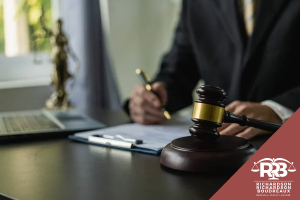
Getting the right legal advice is essential to deal with medical bills after a car accident. At Richardson Richardson Boudreaux, we have the expertise to guide you through this challenging time. We can work with the car or health insurance company to cover your car accident injury. Contact us today to schedule a free consultation.
